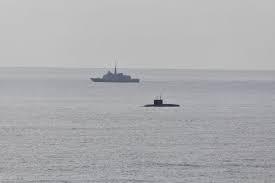The Relevance of NATO in Today’s Global Landscape

Introduction to NATO
The North Atlantic Treaty Organization (NATO), founded in 1949, is a military alliance that comprises 30 member countries. Its primary purpose is to ensure collective defence and security among its members, reflecting its motto: ‘An attack against one is an attack against all.’ In an era marked by complex geopolitical challenges, NATO’s role is more pertinent than ever, affecting international stability and security dynamics.
Recent Developments and Actions
In recent months, NATO has been at the forefront of addressing escalating tensions, particularly concerning Russia’s military aggression in Ukraine. In response to the ongoing conflict, NATO has significantly increased its presence in Eastern Europe. This includes deploying additional troops, enhancing air patrols, and establishing multinational battalions in countries like Poland and the Baltic states.
Aside from military readiness, NATO has engaged in diplomatic efforts, with Secretary-General Jens Stoltenberg calling for unity and resilience among members. The alliance has also seen a renewed focus on cybersecurity to combat information warfare and hybrid threats, showcasing its adaptability in the face of modern challenges.
Significance of NATO for Member States
The importance of NATO to its member states cannot be overstated. For countries like the Baltic states, NATO membership is a cornerstone of national security policy, providing a safeguard against potential aggression. Additionally, NATO acts as a forum for political dialogue, enabling member countries to coordinate their security strategies and crisis responses.
The alliance has also extended its reach through partnerships with non-member countries, enhancing cooperation on security issues globally. Through initiatives like the Partnership for Peace, NATO fosters dialogue and collaboration, ensuring collective efforts in tackling common threats such as terrorism and cyber attacks.
Conclusion and Future Outlook
The future of NATO appears robust as it continues to adapt to a rapidly changing geopolitical landscape. Challenges remain, particularly in light of internal divisions on defense spending and strategic priorities. However, experts suggest that NATO’s ability to evolve in response to threats significantly bolsters the alliance’s credibility and effectiveness.
As global security issues intensify, NATO’s role as a stabilising force will likely remain critical. With ongoing support from its members, NATO is expected to navigate the complexities of international relations while upholding its foundational principles of collective defence and security.
